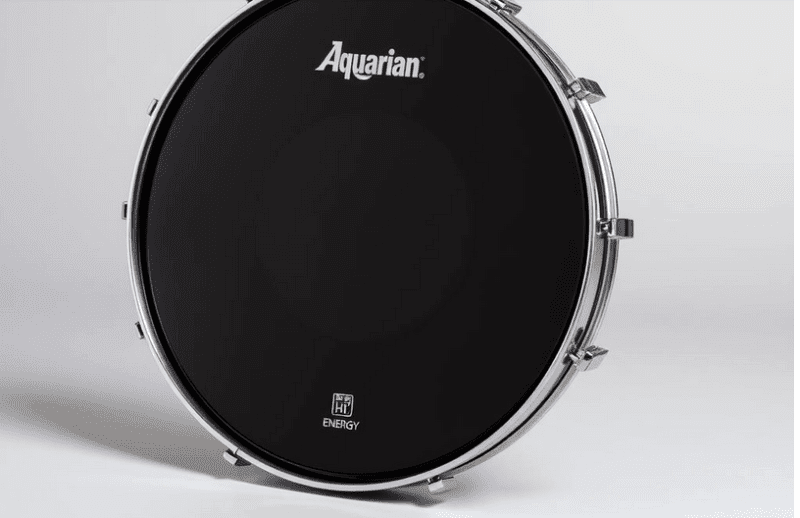"Drum Major Dreams: Your Path to Leadership in High School"

Have you ever dreamed of leading the marching band, front and center, as a drum major? Being a drum major means taking on both musical and leadership challenges. Our article breaks down the steps to earn this prestigious position in your high school marching band.
Dive in and discover how to turn that dream into reality!
Key Takeaways
- To become a high school drum major, develop leadership skills and practice conducting as well as marching patterns.
- Participate in auditions, attend training workshops for drum majors, and learn from your band director's experience.
- As a drum major, communicate clearly with the band, serve as an inspiring example to others and manage your responsibilities with dedication.
What is a Drum Major?
A drum major is the student leader of a marching band, responsible for conducting the ensemble and coordinating their movements during performances. They play a crucial role in maintaining the tempo and ensuring the band's overall success on the field or in parades.
Role in Marching Band:
The drum major stands at the forefront of the marching band, setting the tempo and leading each performance. They use clear conducting techniques to guide musicians through complex pieces.
Their role is vital during parades and competitions where precision and coordination are key.
Drum majors make quick decisions on the field, ensuring that routines run smoothly. They also help teach new members, serving as a mentor to younger students. A successful drum major inspires confidence and unity among band members, helping everyone perform their best.
Responsibilities
To become a drum major in high school, you need to understand the responsibilities associated with this leadership role. Here are the crucial responsibilities:
- Leading warm-up exercises and rehearsals to ensure the band is prepared for performances.
- Maintaining discipline among band members and enforcing standards of behavior during practices and events.
- Conducting performances with precision and confidence, synchronizing the band's movements with your gestures.
- Assisting in teaching marching techniques, musical interpretation, and effective performance strategies to band members.
- Collaborating closely with the band director to plan and coordinate rehearsals, performances, and competitions.
How to Prepare for the Role of Drum Major
Develop leadership skills and practice conducting and patterns to lead the band effectively. Learn how to control tempo and command attention on the field.
Develop Leadership Skills:
To become a successful drum major, it is essential to develop strong leadership skills. Effective communication and the ability to inspire and motivate others are key qualities. Additionally, being a role model, mediator, and decision-maker are important aspects of developing leadership skills needed for this role.
Having a GPA of 2.0 or higher and displaying athletic ability are also looked for in the training program.
Now let's delve into "Practice conducting and patterns" as we explore further steps on how to become a drum major in high school.

Practice Conducting and Patterns:
To prepare for the role of a drum major, it is essential to practice conducting and patterns effectively. Here are the steps to master this skill:
- Familiarize yourself with basic conducting patterns, such as 4/4 and 3/4 time signatures, by studying conducting manuals or watching tutorial videos.
- Practice conducting in front of a mirror to ensure proper hand movements and body posture, focusing on clarity and precision.
- Utilize metronomes to improve tempo control and coordination between hand movements and beat patterns.
- Work on developing fluid transitions between different time signatures, including shifts from cut-time to common time.
- Seek feedback from experienced conductors or band directors to refine your technique and address any areas for improvement.
- Continuously challenge yourself by conducting various musical pieces, incorporating expressive gestures that convey musical interpretations.
Learn How to Control Tempo:
After mastering conducting and patterns, a drum major needs to learn how to control tempo. This requires a deep understanding of musical timing and the ability to keep the band in sync during performances.
The drum major must set the pace and maintain a consistent tempo throughout various marching formations, ensuring that transitions are seamless. Additionally, they need to be aware of different tempos for varied music pieces and have a solid grasp on cueing entrances and cut-offs.
Furthermore, drum majors should understand the impact of tempo on physical movements while marching - maintaining an appropriate speed is crucial for keeping formations neat and precise.
Steps to Becoming a Drum Major:
Audition for the position by demonstrating your musical and leadership abilities. Attend training workshops to hone your skills in conducting, marching, and leadership. Work closely with the band director to learn from their expertise and guidance.
Audition For The Position:
To audition for the position of drum major, students should prepare diligently by honing their conducting skills and deepening their understanding of music. Showing leadership qualities and dedication during the audition process is crucial.
Additionally, aspiring drum majors should ensure they meet any academic requirements set by their school and be ready to articulate why they are passionate about taking on this important role within the marching band.
Working closely with the band director can provide valuable insights into what's expected during auditions, while seeking out training workshops or lessons can further refine your skills.
Attend Training Workshops:
After successfully auditioning for the position of drum major, it's essential to further enhance your skills and knowledge by attending training workshops. These workshops provide valuable insights into leadership development, conducting techniques, and musicianship.
By participating in these workshops, aspiring drum majors can learn from experienced professionals and gain practical experience in field commander tactics, parade marching, and backward marching.
Additionally, these training sessions offer opportunities to connect with peers who share a passion for musical performance and student leadership – an invaluable source of support and inspiration for future success as a drum major.
Seeking out drum major lessons near you is also highly beneficial for honing your abilities.

Work Closely With The Band Director:
After attending training workshops and honing your skills, it's crucial to work closely with the band director. Seek feedback on your conducting techniques and leadership capabilities while fostering a strong working relationship.
The band director's guidance can provide valuable insights into managing the marching band effectively, preparing for performances, and maintaining discipline during rehearsals. Additionally, collaborating with the band director will help you understand the expectations of the role better.
Tips for Success as a Drum Major:
Communicate effectively, be a role model, and stay organized and dedicated in order to excel in the role of drum major. And for more tips on how to become a successful drum major in high school, keep reading!
Communicate Effectively:
Effective communication is essential for a drum major. They must clearly convey instructions to band members and ensure everyone understands their role in performances. It's crucial that they listen attentively to the concerns of both students and staff, fostering a supportive and open environment within the band.
Additionally, drum majors should effectively communicate with the band director to relay any issues or feedback from the members. Being approachable and maintaining clear lines of communication helps build trust and harmony within the ensemble, contributing to successful performances.
To excel as a drum major, strong communication skills are vital when guiding rehearsals, providing constructive feedback, and resolving conflicts among band members. The ability to articulate ideas confidently enables effective leadership and fosters unity within the marching band community.
Be a Role Model:
To be an effective drum major, it is essential to be a role model for the band members. Demonstrating discipline, dedication, and respect sets a positive example for others to follow.
Good conduct on and off the field reinforces the values of responsibility and teamwork within the group, fostering a harmonious and motivated ensemble.
A successful drum major fosters a supportive atmosphere by being approachable, empathetic, and fair while upholding high standards. By embodying these qualities consistently, they inspire confidence in their leadership and create an environment where every member feels valued and empowered to perform at their best.
Stay Organized and Dedicated:
To excel as a drum major, it's crucial to stay organized and dedicated. Prioritize time management to balance academics and band commitments effectively. Keep a detailed schedule for rehearsals, performances, and personal practice sessions.
Develop strong organizational skills by using tools like planners or digital calendars to track deadlines, events, and band activities. Dedication means consistently practicing conducting techniques and staying committed to honing leadership qualities through ongoing learning and self-improvement.
Additionally, maintain open communication with the band members to build trust and respect within the ensemble.
Stay disciplined when preparing for auditions by setting specific goals for improvement in conducting patterns, tempo control, and overall leadership abilities. Furthermore, demonstrate your dedication by seeking feedback from mentors or instructors on ways to enhance your skills continuously.
Conclusion
In conclusion, becoming a drum major in high school involves developing leadership skills and mastering conducting techniques. Students must audition, attend training workshops, and work closely with the band director.
Effective communication, role modeling, and staying organized are key to success as a drum major. With dedication and passion for music education, aspiring drum majors can lead their marching bands to outstanding performances.
FAQs
1. What is a drum major in high school?
A drum major in high school is the leader of the marching band, often acting as a field commander and student conductor during performances and competitions.
2. How can I work towards becoming a drum major?
To become a drum major, you should focus on improving your marching skills, seek leadership training, and learn more about music education to prepare for auditions.
3. What does being a drum major involve?
Being a drum major involves leading the performance ensemble, practicing with the marching band leadership team, and guiding musicians during rehearsals and at marching band competitions.
4. Do I need to audition to be a drum major?
Yes, you must go through drum major auditions where you will demonstrate your ability to lead and conduct alongside showing strong marching skills and an understanding of music education.



